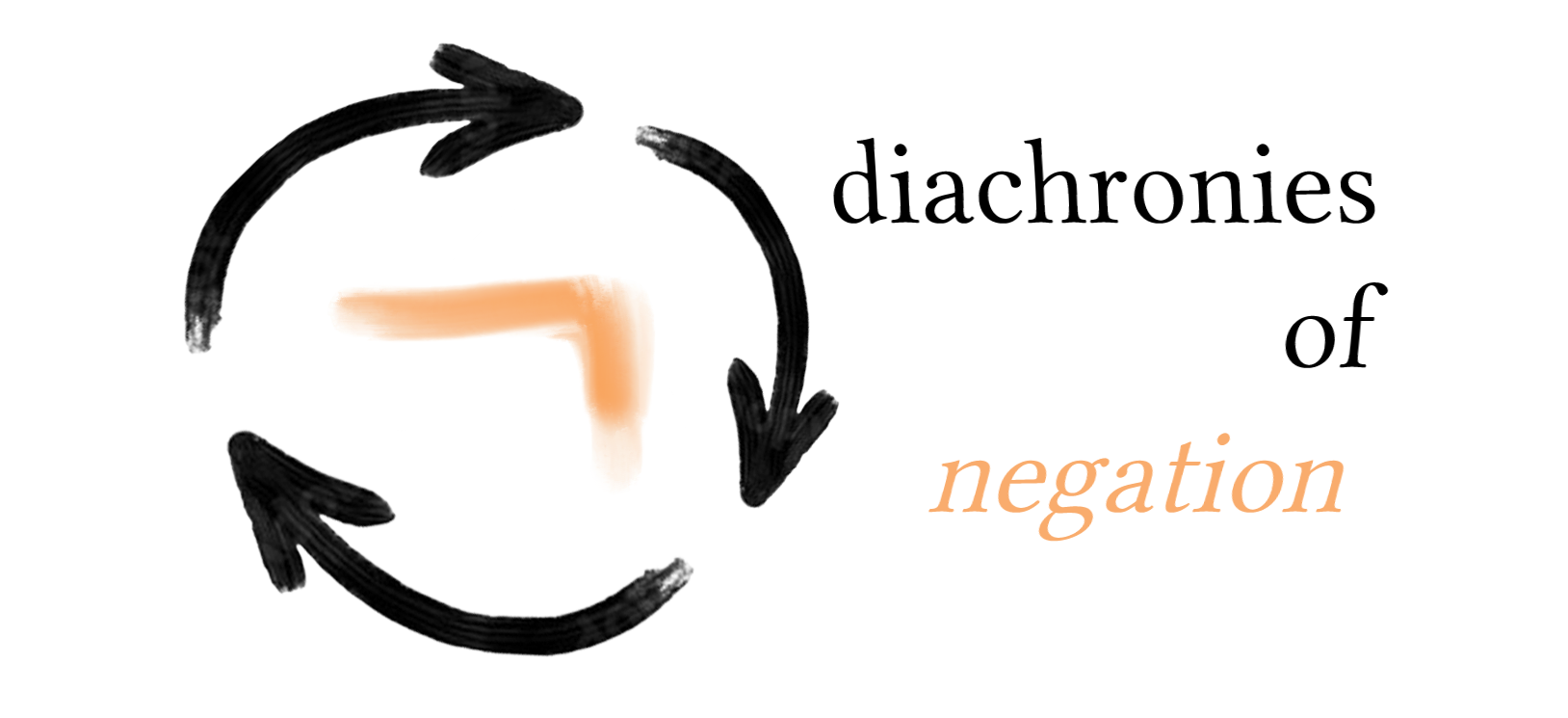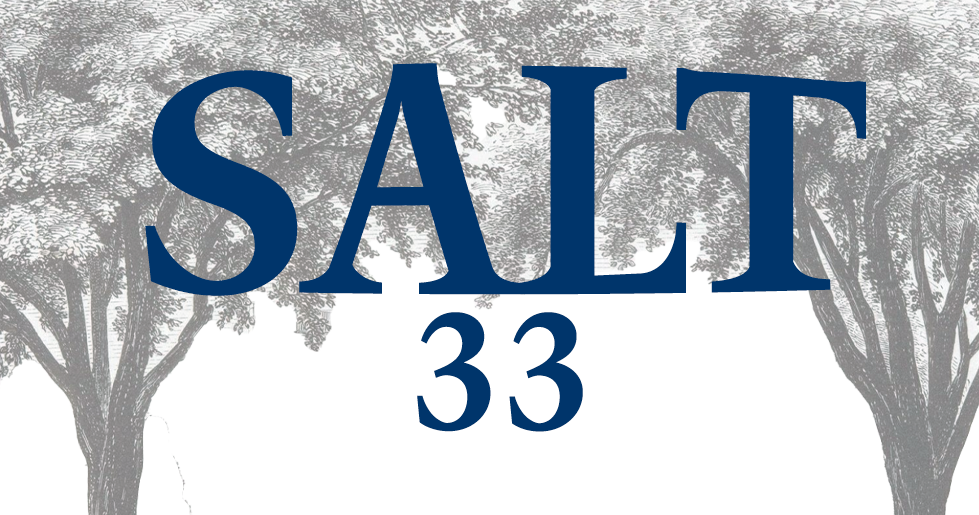To this effect, the diachronies of negation workshop—a satellite of SALT33—brings together a network of scholars who are interested in exploring the historical aspects of natural language negation and change within this semantic domain, using formal & corpus linguistic tools.

the below schedule is preliminary and subject to change
| 8.45–9 | coffee | |
| 9–9.05 | opening remarks | |
| opening session | ||
| 9.05–9.50 | Negation and scalar implicature: the first 750 years [paper] |
Larry Horn |
| 9.50–10 | Break | |
| session 2 | ||
| 10–10.20 | Equatives and comparatives for connective negationslides | Johan van der Auwera, Daniel Van Olmen & Maj-Britt Mosegaard Hansen |
| 10.20–10.40 | On the history of negative counterfactuals [slides] | Elitzur Bar-Asher Siegal |
| 10.40–11 | Interactions of negative concord and TAM: Theoretical consequences [slides] |
Karen de Clercq |
| 11–11.15 | discussion | |
| 11.15–11.35 | Break | |
| session 3 | ||
| 11.35–11.55 | A formal typology of indefinites interacting with negation and its diachronic consequences [slides] |
Chiara Gianollo |
| 11.55–12.15 | Semantic reasons for a syntactic analysis of NPI licensing and Negative Concordslides | Elena Herburger |
| 12.15–12.30 | discussion | |
| 12.30–1.15 | lunch | |
| session 4 | ||
| 1.15–1.35 | More on the diachrony of não in Brazilian Portuguese [slides] | Sonia Cyrino |
| 1.35–1.55 | Contrary negation as a combination of degree negation & a positive operator
In this talk, I demonstrate how weak and strong (or contrary) negation in combination with adjectives amounts to a scopal ambiguity of classical negation with respect to a hidden universal quantifier: the positive operator known from adjectival/degree semantics. The interesting conclusion with respect to Horn Scales like ⟨intelligent, brilliant⟩ is that they seem to necessitate a reinterpretation of that positive operator as an existential quantifier (or a doubly negated universal quantifier). In this, the positive operator from degree semantics seems to follow a more general pattern that we see with modal operators as well. For example, the same modal may sometimes exhibit universal force, sometimes existential force.
[slides] |
Cécile Meier |
| 1.55–2.10 | discussion | |
workshop begins 2.30pm
the workshop Diachronies of negation is sponsored by Yale's Judaic Studies Program and supported by the NSF grant bcs2116164: the Semantics of negation across time and space
